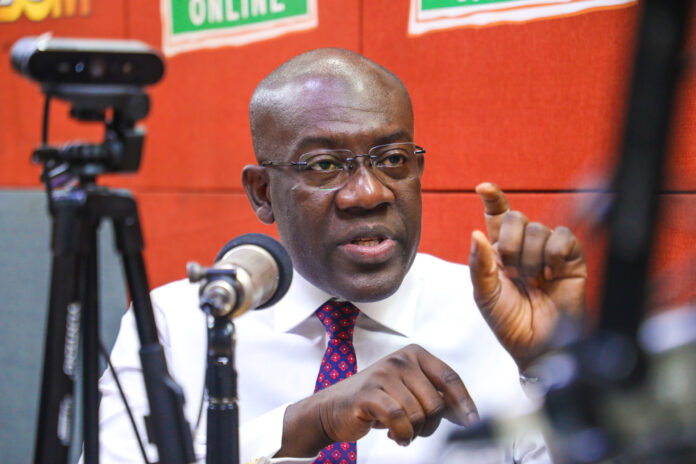Former Information Minister Kojo Oppong Nkrumah has cautioned the Mahama administration against what he describes as an excessive sterilisation policy that has withdrawn about GH₵60 billion from the economy.
Speaking on Channel One TV, Mr. Oppong Nkrumah explained that the government’s aggressive liquidity absorption, aimed at tightening monetary conditions, could slow private sector activity, undermine production, and stall job creation.
“This government has continued with a tight monetary policy until recently, when they eased it a bit. In addition, they have now decided to go for sterilisation. Sterilisation is part of the policy toolkit. In the short term, it may help, but in the long term, it has consequences,” he said.
The former minister revealed that authorities have already withdrawn about GH₵60 billion from circulation and deposited it at the Bank of Ghana.
“They have collected 60 billion cedis from the Ghanaian economy because they believe it is excess liquidity and have packed it at the Central Bank so that the money is not available to stimulate demand or fuel production,” he explained.
While acknowledging that sterilisation is a legitimate monetary policy instrument, Mr. Oppong Nkrumah warned that overuse could hurt the real economy.
“We may disagree on the extent of sterilisation. But our view is that this level is excessive, because these funds could be mobilised through other economic tools to fund production, create jobs, and stimulate the economy,” he argued.
He drew a comparison with the Akufo-Addo administration, noting that under their tenure, monetary tightening helped reduce inflation from 54 percent at the height of the global cost-of-living crisis in 2020 to about 23 percent by 2024.
Mr. Oppong Nkrumah stressed that while managing inflation remains important, the current policy should now focus on stimulating production and creating jobs to sustain Ghana’s economic recovery.



